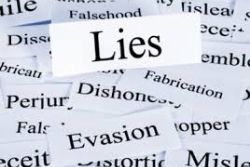- Business
- Childbirth & Education
- Legal Formalities
- Motoring
- Other
- Pensions & Benefits
- Property & Accommodation
- Taxes
- Airports and Airlines Spain
- Paramount Theme Park Murcia Spain
- Corvera International Airport Murcia Spain
- Join us for Tea on the Terrace
- When Expat Eyes Are Smiling
- Meet Wincham at The Homes, Gardens & Lifestyle Show, Calpe
- QROPS 2014
- Spain Increases IHT in Valencia & Murcia
- Removals to Spain v Exports from Spain
- The Charm of Seville
- Gibraltar Relations
- Retiro Park : Madrid
- Community Insurance in Spain
- Calendar Girls
- Considerations when Insuring your Boat in Spain
- QROPS – HMRC Introduces changes that create havoc in the market place
- QROPS – All Change From April 2012
- Liva & Laia : 15th November

Spain's 2013 GDP figures, the indicator used by statistics institutes to measure a country's economic activity, has grown by €26.193 billion to €1.049 trillion. Around €9 billion of that rise is due to the inclusion of the contribution that illicit activities – including prostitution, drug trafficking and smuggled goods – make to the economy. The National Statistics Institute (INE) had not included these figures in its calculations before, but they now account for 0.87% of GDP.
The incorporation of activity from the underground economy is just a small part of the methodological changes introduced by the INE, which also now registers military, research, development and innovation spending as an investment, and not as a cost, as had previously been the case.
The rise in GDP that has resulted from applying this new package of statistical rules, which is known as SEC 2010, will have a direct impact on the measurement of certain economic indicators, such as the public deficit and public debt, all of which serve as a guide for the European Commission when it comes to determining whether EU states are working toward balancing their budgets.
To estimate the value that drug trafficking has for Spain's economy, the INE has taken into account the quantity of narcotics seized by the police, using that amount to estimate the total impact the production and sale of illegal substances has on the economy. A similar methodology has been used for smuggling.
As for prostitution, the calculation is based on the number of people working in the country's brothels, which under Spanish law reside in a gray area, being neither fully legal nor illegal.
Recommended Reading :
* Spain calculates sex trade worth EU60 Mln per day










